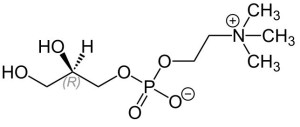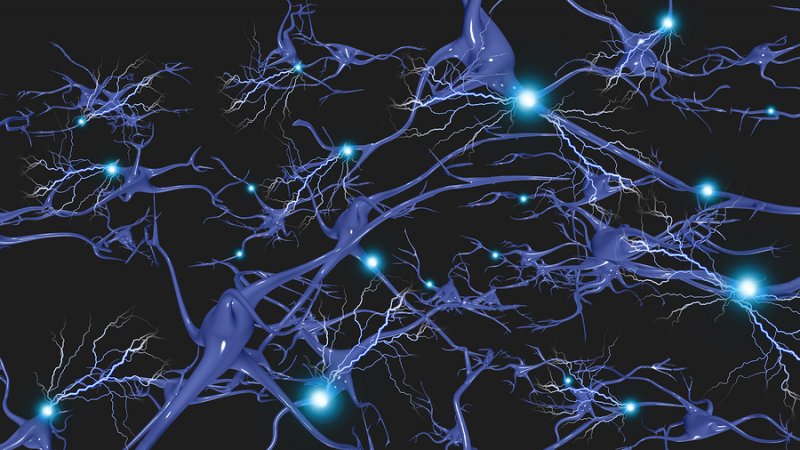Table of Contents
Key Takeaways
- Alpha GPC (L-Alpha Glycerylphosphorylcholine) is a choline source derived from soy or sunflower lecithin and is naturally present in the body.
- It is highly bioavailable and can easily cross the blood-brain barrier, making it a preferred choline source for brain benefits in nootropic users.
- As a precursor to acetylcholine, it enhances brain energy, mood, mental clarity, and memory.
- Alpha GPC supports brain health by boosting acetylcholine levels, aiding brain cell membrane development, and increasing dopamine release.
- Recommended dosage for cognitive benefits ranges from 300 to 1,200 mg per day, and while generally safe, potential side effects include fatigue, headaches, and gastrointestinal issues.
Alpha GPC (L-Alpha Glycerylphosphorylcholine, choline alfoscerate) is a choline source derived from soy or sunflower lecithin. It is also naturally present in small amounts in your body.
Alpha GPC is more bioavailable than other sources of choline for brain benefits. Unlike choline citrate or choline bitartrate, it easily crosses the blood-brain barrier. This makes Alpha GPC a preferred choline source with experienced nootropic users.
Alpha GPC is a precursor to the essential neurotransmitter acetylcholine.
Alpha GPC helps:
- Brain Energy. Alpha GPC improves mood, and boosts mental energy. The extra choline can increase alertness and clarity of thought.
- Neurotransmitters. Alpha GPC is prized for its ability to improve memory. Its high bioavailability makes it a great source of choline for producing the neurotransmitter acetylcholine.
- Brain Optimization. Alpha GPC boosts the development of new brain cells. And enhances your brain’s ability to repair damaged cell membranes.
Overview

Alpha GPC is a type of choline that’s produced in small amounts in your body. You can also get it from eating organ meats, dairy and wheat germ.
Choline is considered an essential nutrient because when your body uses it faster than it can produce it, you need supplemental choline either from food or a supplement.
You need choline for the production of the neurotransmitter acetylcholine. And to form phosphatidylcholine (PC), used in building cell membranes.
In fact, choline is so vital to cognition and nerve function that, without it, we couldn’t move, think, sleep or remember anything.
Alpha GPC is used throughout your body. It even helps the production of human growth hormone. Athletes use it for peak performance, and to help build lean muscle mass. It provides more energy for a workout and quicker recovery.[i]
Here we’re talking about how Alpha GPC affects your brain health and chemistry.
Alpha GPC vs. CDP-Choline vs. Choline Bitartrate: What’s the Difference?
Choline is a water-soluble nutrient and its composition is similar to B-vitamins. Alpha GPC, CDP-Choline, Choline Citrate and Choline Bitartrate are all sources of choline.
CDP-Choline (cytidine 5′-diphosphocholine): Is only about 18% choline by weight. Your body naturally synthesizes choline into CDP-Choline (Citicoline). It’s then converted to phosphatidylcholine (PC) which assists cell membranes, and helps create acetylcholine.
 Choline Bitartrate: An economical form of choline, and about 40% choline by weight. So 1 gram of Choline Bitartrate offers 400 mg of actual choline. It does not easily cross the blood-brain barrier. So you won’t experience the same level of nootropic benefits as with Alpha GPC or CDP-Choline.
Choline Bitartrate: An economical form of choline, and about 40% choline by weight. So 1 gram of Choline Bitartrate offers 400 mg of actual choline. It does not easily cross the blood-brain barrier. So you won’t experience the same level of nootropic benefits as with Alpha GPC or CDP-Choline.
Alpha GPC: About 40% choline by weight and easily crosses the blood-brain barrier. Alpha GPC naturally occurs in your brain as a byproduct of phosphatidylcholine (PC). When your brain needs more choline, and the choline floating around in your brain is running low, it breaks down PC from cell membranes. And turns it into Alpha GPC.
Your body and brain loves it when you use Alpha GPC. Because it doesn’t have to cannibalize its own cells to get more choline.
How does Alpha GPC Work in the Brain?
Alpha GPC boosts brain health and function in several ways. But two in particular stand out.
- Alpha GPC boosts acetylcholine, a neurotransmitter tied to memory and overall brain function. Alpha GPC is a precursor to acetylcholine. Improving the efficiency of communications between neurons in your brain. This increase in neural signaling boosts memory, learning, cognitive processing and mental clarity.
In one study, 32 healthy volunteers received either Alpha GPC or a placebo as a pretreatment. Ten days later they were injected with scopolamine to induce amnesia. The researchers found Alpha GPC was able to prevent the impairment of attention and memory normally caused by scopolamine.[ii]
These researchers showed that memory function in young healthy people could be racked up a notch. Simply by taking Alpha GPC as a supplement.
- Alpha GPC directly impacts development of cell membranes in the cerebral cortex. This outer layer of neural tissues or “gray matter” is the information processing center of your brain. It controls intelligence, motor function, organization, personality, planning and touch.[iii]
Published in Clinical Therapeutics, researchers conducted a double-blind, placebo-controlled trial with mild to moderate Alzheimer’s patients. 400 mg capsules were administered 3- times per day for 180 days. The conclusion of this trial showed consistent improvement in dementia patients given Alpha GPC.[iv]
How things go bad
As we get older, our brain chemistry and energy metabolism changes.
↓ Recall, reaction time and mood diminish
↓ Brain cell membranes degenerate
↓ Acetylcholine levels decline[v]
↓ Nerve growth factor in the brain declines
All of these age-related changes are contributing factors to the neurodegenerative diseases of aging, including Alzheimer’s and dementia.
But even if you’re not concerned with the effects of aging, Alpha GPC can help.
Alpha GPC benefits
There are many benefits of Alpha GPC. Research from hundreds of studies have shown that Alpha GPC will:
- Improve memory and learning ability[vi]
- Restore the bioavailability of acetylcholine[vii]
- Restore and boost nerve growth factor receptors in the brain[viii]
- Increase growth hormones in all age groups[ix]
- Boost cognitive performance and memory in Alzheimer’s patients[x]
Alpha GPC is water-soluble and quickly enters your brain after you take it. Once in your brain, it boosts signal transmission, and protects neurons.
Alpha GPC improves your brain function and learning processes by directly increasing synthesis and secretion of acetylcholine. As your body calls for it.
This form of choline is not a precursor to phosphatidylcholine (PC), but is a metabolite of PC. This means once PC is metabolized and stripped of its fatty acids – all that remains is Alpha GPC.
Instead of scavenging your brain’s own membranes for Alpha GPC, you give it exactly the type of choline its looking for.
How does Alpha GPC feel?
If you have trouble getting started in the morning, try coffee and 400 mg of Alpha GPC. Instead of your usual high sugar, high carbohydrate breakfast.
Alpha GPC can be a great way to boost your energy. Take it 45 minutes before you work out.
Alpha GPC helps with memory, mood, mental performance and energy. Its brain support and ability to fuel the acetylcholine in your brain cells should boost cognition in all age and gender groups.
Alpha GPC Clinical Research
In one study, researchers showed that Alpha GPC had positive effects for increasing human growth hormone.[xi]
Alpha GPC Increases the Release of Dopamine
Another trial demonstrated the increase in the release of dopamine.[xii] This is particularly significant in showing Alpha GPC can help those suffering from dopamine deficiencies. And alleviating the symptoms of diseases like depressive disorders and Parkinson’s Disease.
Alpha GPC Facilitates Learning and Memory
 An ongoing trial demonstrates Alpha GPC improving memory and attention. This research shows Alpha GPC increasing the effectiveness of pairing it with donepezil (acetylcholinesterase inhibitor). Far better than using donepezil on its own.
An ongoing trial demonstrates Alpha GPC improving memory and attention. This research shows Alpha GPC increasing the effectiveness of pairing it with donepezil (acetylcholinesterase inhibitor). Far better than using donepezil on its own.
And in rats, Alpha GPC boosted learning and memory. It increased brain energy mechanisms and decreased age-related structural changes in the brain.[xiii][xiv]
Alpha GPC Relieves Cognitive Decline and Impairment in Alzheimer’s
Thirteen published clinical trials, involving a total of 4,054 Alzheimer’s patients consistently showed Alpha GPC:[xv]
- Improved cognitive function, memory, and attention
- Promoted recovery in stroke patients
- Reversed the symptoms of acute cerebrovascular disease
- Is far more effective than using choline or lecithin in treating disease
Recommended Alpha GPC Dosage
Alpha GPC is about 40% choline by weight. So 1,000 mg of Alpha GPC provides approximately 400 mg of choline.
- Alpha GPC suggested dosage for cognitive benefits is 300 – 1,200 mg per day.
- Athletic training suggested dosage of Alpha GPC is 300 mg first thing in the morning, and another 400 mg dose 15 – 30 minutes before working out.
- Clinical treatment of Alzheimer’s Disease, dementia and other cognitive disorders dosage of up to 1,200 mg per day.
For higher dosages, split the daily Alpha GPC total into 2 or 3 doses per day. For example, 1,200 mg would be taken 400 mg at a time.
Alpha GPC Side Effects
Alpha GPC is produced naturally in your body. So is considered well-tolerated and safe.
Side effects are rare but can include fatigue, headaches, nervousness, nausea, diarrhea and gastrointestinal issues. This is often an indication you have too much choline in your body.
Because Alpha GPC causes an energy boost in many neurohackers, avoid dosing in the evening. Or you may have difficulty getting to sleep.
A very recent study published in 2021 including more than 12 million individuals aged 50 years or older who used Alpha GPC for at least 10 years had a 46% increased chance of stroke. So for short-term use Alpha GPC is safe. But if you need a choline supplement for long-term use you may want to consider switching to CDP-Choline (Citicoline) like I did once I read that study.
Type of Alpha GPC Supplement to buy
Because Alpha GPC tends to liquefy at 99-100%, many suppliers offer 50% Alpha GPC powder combined with 50% of a filler like silicon dioxide. Adjust your dosage accordingly.
AlphaSize® and CholineAid® are a Kosher Certified, Halal Certified, USP grade, NDI, GRAS-affirmed, patented forms of Alpha GPC manufactured by Chemi Nutra. Which is the U.S. business unit of parent company Chemi S.p.A., a privately held pharmaceutical and nutraceutical company based in Milan, Italy. The company has cGMP certified manufacturing facilities in Italy and Brazil.
Nootropics Expert Recommendation
Alpha GPC 300 – 1,200 mg per day
 I recommend using Alpha GPC as a nootropic dietary supplement.
I recommend using Alpha GPC as a nootropic dietary supplement.
Your body does make some Alpha GPC on its own. And from the food you eat. But studies have shown we don’t get an adequate supply of dietary choline from food sources in our modern diet.
Alpha GPC is especially helpful for those suffering from age-related cognitive decline. Studies show it helps stop or reverse brain degeneration like Alzheimer’s Disease, and other cognitive disorders. Particularly in the early to mid-stages of the disease.
I suggest starting with a dose of 400 mg daily. And Alpha GPC is a great compliment to a stack including any nootropic from the racetam-family. Anything that causes an increase in uptake of acetylcholine in your brain.
You need to provide your brain with the choline it is demanding. Or it starts cannibalizing your own brain cells for more acetylcholine. Signs that you’re lacking adequate choline are headaches.
Take Alpha GPC at a ratio of 1:4. For example, 400 mg of Alpha GPC dose to 1,600 mg of a racetam like Piracetam.
How much Alpha GPC you should take will depend on your situation.
Age-related cognitive disorders like Alzheimer’s may want to up the dose to 1,200 mg of Alpha GPC per day.








Join The Discussion - 227 comments
Steve
December 16, 2020
Would you recommend cycling on and off alpha gpc 50% with 300 mg per day supplementation when on cycle? Is it possible to develop tolerance? Thank you!
David Tomen
December 16, 2020
Steve, there is no need to cycle Alpha GPC. This choline compound is naturally made in your brain already. All you’re doing to supplying more Alpha GPC than your brain can make on its own.
This is especially important if you are using anything that uses acetylcholine such as any of the racetams. Or even a heavy work or study session that puts an extra load on your brain. Acetylcholine is used throughout your body as a signaling molecule. And most of us are deficient in this neurotransmitter.
You cannot develop “tolerance” to Alpha GPC. You can use too much however. But the side effects of excess acetylcholine usually goes away within a couple of hours.
Brian Morenze Peiris
December 14, 2020
Hi David,
I have sourced a 300mg of Alpha GPC supplement mixed with 300mg of Calcium phosphate dihydrate, (i guess I missed it prior to ordering) is this a safe combo to use? I don’t have a calcium deficiency.
Thanks!
Brian
David Tomen
December 14, 2020
Brian, according to Wikipedia, Calcium phosphate dihydrate in prepared breakfast cereals, dog treats, enriched flour, noodle products, poultry feed, as a tableting agent in pharmaceuticals, in some products meant to eliminate body odor, and in some toothpastes as a tartar control agent.
Why it would be included in a nootropic supplement that has Alpha GPC is beyond me. But according to the above it doesn’t sound dangerous. I suggest asking the manufacturer why they included it in that supplement.
Sam
December 8, 2020
Does Alpha GPC need to be taken with food? How much better absorbed is it taken with or without food?
David Tomen
December 8, 2020
Sam, Alpha GPC is water-soluble and does not need to be taken with food. It gets to your brain soon after you take it with water.
Leyla Hinson
November 25, 2020
Ive been taking Alpha GPC for the past few weeks as I’ve been withdrawing from a tricyclic antidepressant. I am experiencing bad withdrawal symptoms. I came across this information:
“A major mechanism of withdrawal from tricyclic antidepressants is believed to be due to a rebound effect of excessive cholinergic activity due to neuroadaptations as a result of chronic inhibition of cholinergic receptors by tricyclic antidepressants
Does this mean I shouldn’t be taking Alpha GPC?
David Tomen
November 25, 2020
Leyla, based on that quote you shouldn’t be using Alpha GPC. Because that quote is saying you are already dealing with excess choline activity due to withdrawal from the drug.
Where did you find that quote? I’d like to read the entire study. Because a lot of people come here looking for answers on avoiding the severe side effects of antidepressant discontinuation withdrawal symptoms. And so far, I haven’t found an answer.
Leyla Hinson
November 28, 2020
I found the abstract of the case study here. https://pubmed.ncbi.nlm.nih.gov/9262526/
After coming across this study, I immediately stopped taking the Alpha GPC. This was four days ago. It seemed to be the only logical explanation for what seemed to be such exasperated withdrawal effects. I couldn’t understand- I had been withdrawing from the TCA slowly yet I felt the awful peak of the withdrawal effects last week, when I stopped taking the TCA altogether after all these months of slow withdrawal. In this same week, I had doubled my Alpha GPC dose to 240/day. Big mistake. I stopped the Alpha GPC four days ago. I cannot stress just how much better I finally feel. I feel TOTALLY different! I had no idea that that this type of antidepressants was an anticholinergic nor did I understand just how detrimental anticholinergics are to memory, which is why I began the alpha gpc in the first place as a desperate attempt to improve my deteriorating memory – now I know the true underlying cause. I can honestly say as I’ve slowly been withdrawing from the TCA while taking Alpha GPC, I believe I can attest to the correlation between the excess choline from the Alpha GPC in conjunction with reactivated choline receptors after being on an anticholinergic for nearly two years. Now I’ll be on a journey to repair some of the damage done by these awful drugs – any tips?
David Tomen
November 28, 2020
Leyla, any supplement that helps repair acetylcholine receptors should help. Those are typically nootropic supplements that increase Nerve Growth Factor and/or Brain-Derived Neurotrophic Factor (BDNF). You should also take a look at PC (https://nootropicsexpert.com/phosphatidylcholine-pc/) and PS (https://nootropicsexpert.com/phosphatidylserine-ps/). Both supplements should affect acetylcholine receptor density.
Claudio
October 21, 2020
Hi David, does alpha gpc lower testosterone levels?.
What can I take for nicotinic receptors other than nicotine?
Greetings.
David Tomen
October 23, 2020
Claudio, Alpha GPC will not touch testosterone. And do a search using the search function above the top menu for “nicotinic”. You’ll get a list of the nootropics that affect nicotinic receptors. Nootropics like Noopept comes to mind.
Adjai
September 26, 2020
Hello David
How often to use Alpha-gpc?
Thanks
David Tomen
September 26, 2020
Adjai, it depends on your body and brain’s demand for more acetylcholine. Regular suggested dosage is 300 mg 2 – 3-times per day.
Ryan
September 25, 2020
Hi
if a person wanted to manufacture their own Alpha GPC products, how does a person get the information on where to start , what machinery is needed and what raw materials ect?
There doesn’t seem to be much information out there on the manufacturing process of Alpha GPC just that it is a source of choline derived from soy or sunflower.
Would really appreciate it if I could get some information on the manufacturing process?
David Tomen
September 25, 2020
Ryan, this question needs to be put to a biochemical engineer and not someone like me. Maybe try asking these guys? http://purelife-bio.com/products/alpha-gpc/
Adjai
September 25, 2020
Hello David
How long to consume Alpha GPC?
Thanks
David Tomen
September 25, 2020
Adjai, I do not understand your question. Do you mean how often should you use Alpha GPC?